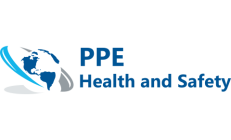
Cleanliness is something that has become incredibly important to our societies in these modern times. Even though we are still currently dealing with a strain of the coronavirus out there, the fact is that pandemics are very few and far between in the modern world now, thanks to our hygienic practices both as personal individuals staying clean and our ability to keep our public spaces free of bacteria by and large. A lot of our cleanliness today has a lot to do with basic over-the-counter cleaning products. Those mould and mildew killers and those bacteria-be-gone sprays are heavily marketed, and millions of people buy and use them. This keeps us all a lot cleaner and a whole lot safer.
Generally speaking, most of us clean up after ourselves in the home. If we do need help there, or when we need help cleaning a commercial space like a business, that’s when we’ll call in the professional cleaning services from a location like lemonfreshcleaning.ca to handle things for us. But there is no magic solution the pros have that we can’t find ourselves. Their germ-killing solutions are labelled as 99.9% effective, just like ours. So, what’s up with that number anyway? Why do these cleaning products claim to only get 99.9% of germs? That one in every one-thousand germ must be a warrior! Let’s have a look at some of the known reasons for this number.
Reasons for That 99.9% Number
Accounting for Variety
Epidemiologists, virologists, microbiologists, none of these scientists can tell you just how many different types of bacteria are out there. They can estimate, but no one knows when another little bothersome single-celled organism will pop up into existence. What if a new type of bacteria or mould spore ends up being able to resist a cleaning solution or a disinfectant spray? Cleaners might be very thorough, but there simply is no guarantee that every single little bacterium can be eliminated. There’s just the possibility that exists that a small portion of those bacteria may survive, especially if they’re some new breed.
A Liability Issue
There is also a liability issue that everyone has to deal with when selling products. If the claim was that Cleaner X killed 100% of all germs and bacteria, guaranteed, what happens when someone decides to put a surface under a microscope and they find a couple of little germs out of millions have survived? This is a lawsuit waiting to happen. It may seem a bit silly, but this is the sort of thing that happens in our civil systems constantly. So by claiming the 99.9% number, those few surviving germs are within the margin of error, thus protecting the company.
You Just Can’t Be Sure
To be very clear about what science is, it is not proof of anything. That is left in the realm of mathematics. In science, they do not deal in 100% absolutes for anything. Cleaning services are using cleaning products, but these products are actually available only because of germ theory. Science, and its ability to see germs and bacteria and test what kills them, is responsible for the entire genre of cleaning solutions. And in science, there is simply no such thing as a 100% certainty.
Marketing, Marketing, Marketing
These days, with all of the different competition out there, the 99.9% tag is more like a marketing ploy than anything. Sure, it might still be accurate, but why would so many say the exact same thing? It’s marketing parity, pure and simple. When the cleaners go to purchase a solution, one might expect to find a bottle saying, “We kill almost all the germs” or “The majority of bacteria,” etc. Though due to market parity, the next solution on the market is going to market itself in the same way that the previous successful solution did. This means you will see that 99.9% number often as just a marketing tool.
The bottom line is that these cleaning solutions do work. They had to go through rigorous trials before they were even allowed to show up on the market. What you should focus on is cleaning often and thoroughly, not on that 99.9% number. After all, even if it were 100%, what good would it do if you didn’t clean often?

